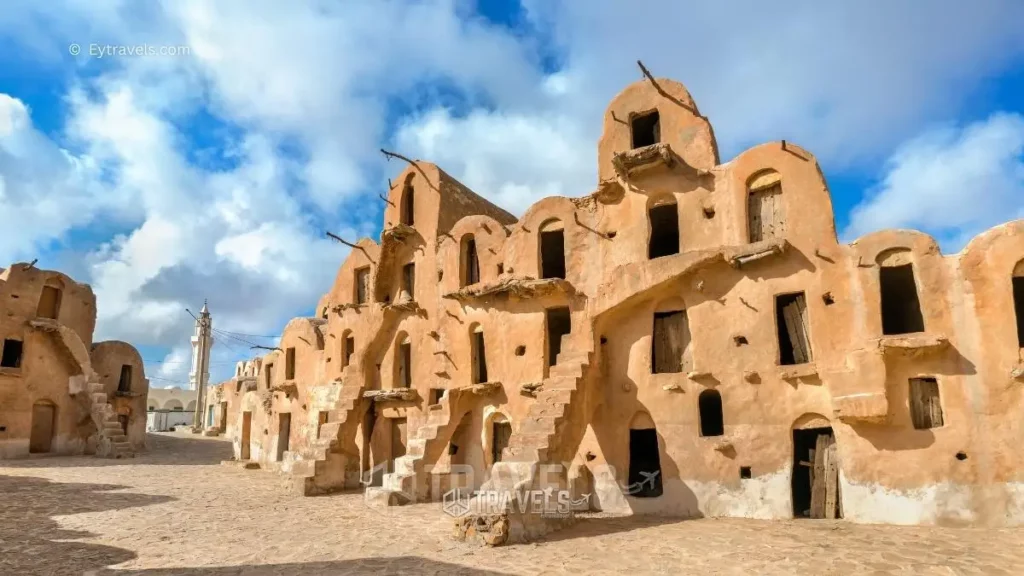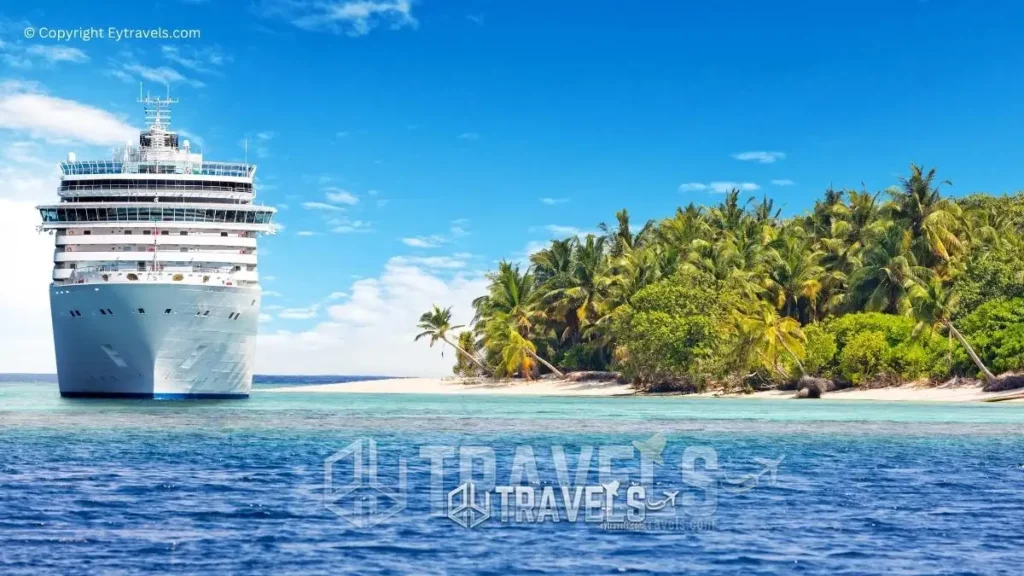What is Cultural Travel? Exploring the Best Cultural Destinations
Discover Hidden Gems and Uncover Ancient Traditions with Cultural Travel
Traveling can take different forms, and cultural travel is a type of travel where the focus is on experiencing and learning from the local culture. By traveling with the intention of exploring different cultures, you get to experience the people, their customs, and their ways of life. Embark on a journey of discovery through cultural travel. Immerse yourself in breathtaking landscapes and captivating traditions. Learn what is cultural travel now!
Cultural travel goes beyond visiting museums and landmarks; it offers an opportunity to immerse oneself in the local culture and learn about it firsthand.
What is Cultural Travel?
Defining Cultural Travel
Cultural travel is a type of travel that involves immersing oneself in the local culture of the destination. It is an intentional and educational approach to exploring new places that aims to broaden your perspective and deepen your understanding of other cultures.
Why is Cultural Travel Popular?

As the world becomes more interconnected, cultural travel has become increasingly popular. There is a growing awareness that traveling can foster understanding, empathy, and appreciation for different cultures. People are looking for more meaningful travel experiences, and cultural travel provides just that.
Benefits of Cultural Travel
Cultural travel provides endless benefits. It can help travelers develop a new perspective on the world, increase cultural understanding, and promote tolerance and respect for other cultures. It also offers the chance to try new foods, learn different languages, and experience life in a different way. In addition, cultural travel can have a positive impact on the local economy, as visitors spend money on tours, accommodations, and local businesses.
Planning a Cultural Trip
Choosing the Right Destination

There are many destinations that offer rich cultural experiences. Some people prefer to travel to destinations that are known for their cultural heritage, such as Italy, Peru, or Egypt. Others prefer to visit lesser-known destinations that offer unique cultural experiences, such as Ecuador, Colombia, or Cambodia. When choosing a destination, consider what kind of cultural experiences you are looking for, and research what different destinations have to offer.
Creating a Cultural Itinerary
Creating a cultural itinerary is essential for a successful cultural trip. It is important to plan activities that allow you to immerse yourself in the local culture, such as visiting local markets, attending cultural festivals, or taking cooking classes. It is also important to leave room for spontaneity, as some of the best cultural experiences happen when you least expect them.
Working with a Travel Agent
If you are new to cultural travel, working with a travel agent who specializes in cultural travel can be helpful. A travel agent can provide expert guidance on destinations, activities, and accommodations, and can help you create a customized cultural itinerary that meets your interests and needs.
Immersive Cultural Travel
What is Immersive Travel?
Immersive travel is a type of travel that goes beyond observation and encourages travelers to actively participate in the culture they visit. It involves living with local families, volunteering in local communities, participating in cultural activities, and engaging with the local people.
Experiencing Culture Firsthand
Experiencing culture firsthand is the heart of culturally immersive travel. This can include everything from learning how to cook traditional foods to participating in a traditional dance. By engaging with local people and their culture, travelers gain a deeper understanding of the traditions that define a place.
Best Cultural Destinations for Immersive Travel
Some of the best destinations for immersive cultural travel include Tunisia, Morocco, India, and Thailand. In these countries, visitors can participate in cultural activities, such as cooking classes, farming, and local festivals.
The Downsides of Cultural Travel
Cultural Appropriation
Cultural appropriation is a common problem in cultural travel. It occurs when travelers take elements of a culture and use them without proper acknowledgment or respect. To avoid cultural appropriation, it is important to learn about the culture you are visiting, understand the significance of the traditions you are participating in, and always show respect for the local people and their culture.
Overtourism and its Effects
Overtourism is another concern in cultural travel. It occurs when there are too many tourists in a destination, which can lead to environmental damage, overcrowding, and other negative effects. To avoid overtourism, travelers can visit off-the-beaten-path destinations, travel during the off-season, and be mindful of their impact on the local environment and community.
Environmental Impact of Cultural Travel
Cultural travel can also have a negative impact on the environment. For example, air travel is a significant contributor to greenhouse gas emissions. To reduce your environmental impact while traveling, consider taking alternative forms of transportation, such as trains or buses, and minimize your use of disposable plastics and other waste.
Cultural Travel via Cruise
Is a Cultural Cruise Right for You?

Cultural cruises are another type of cultural travel that offer unique opportunities to explore different destinations. They offer the chance to visit multiple destinations in one trip, and often include cultural activities, such as lectures, culinary experiences, and local tours. If you enjoy cruising and want to experience different cultures in a comfortable and convenient way, a cultural cruise could be the right choice for you.
Advantages of Cultural Travel via Cruise
Cultural travel via cruise offers several advantages, such as the convenience of visiting multiple destinations in one trip, the luxury of on-board amenities, and the opportunity to learn from knowledgeable guides and experts.
Disadvantages of Cultural Travel via Cruise
There are also some disadvantages to cultural travel via cruise, such as the limited time spent in each destination, the impersonal nature of large cruise ships, and the potential for overcrowding in popular ports. For those who prefer a more immersive and authentic cultural experience, other forms of cultural travel may be more suitable.
Final Thoughts
Traveling allows us to explore different cultures, learn from new experiences, and challenge our perspectives. Cultural travel is a unique and rewarding type of travel that can enrich our lives and broaden our horizons. By respecting the local culture, engaging with the local community, and being mindful of our impact, we can enjoy the best that cultural travel has to offer.
FAQs: What is cultural travel?
A: Cultural travel is a type of travel experience that involves immersive travel and tourism to destinations famous for rich culture and cultural exchange. It's a way of seeing the world and gaining a deeper understanding of different societies, traditions, and customs.
Q: What are the best culture travel destinations?
A: Some of the world's best culture travel destinations include Havana, Cuba; Kyoto, Japan; Varanasi, India; Istanbul, Turkey; Rome, Italy; Mexico City, Mexico; Marrakech, Morocco; and many more. Each destination offers its unique cultural experience and charm.
Q: How is cultural travel different from other types of travel?
A: Cultural travel focuses on cultural immersion, exploring local food, and learning about local cultures. It's different from other types of travel, where people visit popular resorts or spend their time at beaches. Cultural travel is a type of travel where you start planning a trip to experience a new level of understanding of the world's diverse cultures.
Q: What can I expect from a culturally immersive travel experience?
A: A culturally immersive travel experience involves designing an itinerary to explore a country's cultures you're interested in, participate in activities like homestays, local cuisine, and day trips to understand the local lifestyle. It also includes trekking, learning about the cultural legacy, and cross-cultural interactions.
Q: Why is cultural travel essential?
A: Cultural travel provides an opportunity to experience and appreciate different cultures, understand the world's history, and make new connections. Cultural travel helps to expand your horizons and connect you with the world in a way where you can appreciate the beauty of life in all its richness.
Q: Are there any specific travel guides for cultural trips?
A: Yes, there are many travel guides on culture trips available online or in-book stores. You can use them to plan your itinerary and make the most of your cultural travel experience.
Q: Can I enjoy beach time during my cultural travel?
A: Yes, of course! You can add a beach visit in your itinerary and enjoy the local ambiance, but try to balance it with your cultural experience. Beaches are a great way to relax and spend some time rejuvenating during your travels.
Q: What is the significance of local food during cultural travel?
A: Local cuisine is a crucial aspect of cultural travel as it reflects the culture of the region. Tasting local food provides a new experience, and authentic dishes tell you a lot about the culture and its history which allows you to appreciate the area more thoroughly.
Q: What does all-inclusive mean in cultural travel destinations?
A: All-Inclusive means that the cost will usually cover almost everything during your stay; room, meals, drinks, and some activities. It's convenient for people looking for a budget-friendly way to travel, but it won't necessarily provide the most authentic cultural experience.
Q: Are there any cultural travel destinations recognized by UNESCO?
A: Yes, some popular cultural travel destinations recognized by UNESCO include; the Great Wall of China, the historical city of Havana in Cuba, the stunning Alhambra in Spain, and the Angkor Wat temple complex in Cambodia.







This is such an important and often overlooked topic Thank you for bringing attention to it and offering valuable advice
Your blog post was really enjoyable to read, and I appreciate the effort you put into creating such great content. Keep up the great work!
Excellent article! It’s well-organized, informative, and written in a way that’s easy to follow. I found it very helpful.
This blog covers important and relevant topics that many are afraid to address Thank you for being a voice for the voiceless
Great job on this article! It’s packed with useful information and written in a way that’s easy to follow. I’ll definitely be returning to read more from your blog.